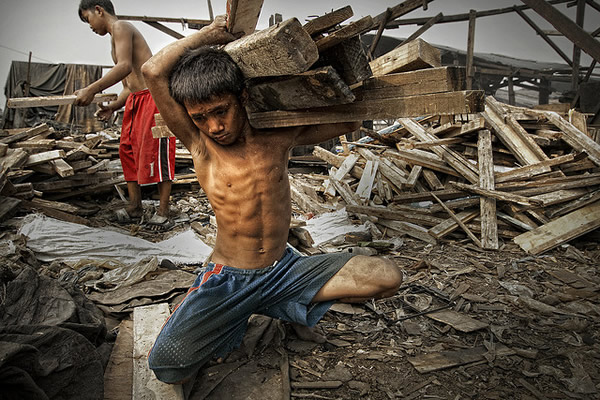What is child labor ?
Not all work done by children or adolescents should be considered as child labor. It refers to work that affects their mental, physical, moral or social health in a negative way or deprives them of the opportunity to attend school. In extreme occasions child labor involves children being enslaved, separated from their families, exposed to serious illness and left alone in to the industrial areas.


Child labor in Bangladesh
Bangladesh is often associated with child labor and it's no surprise since there are over 7 million children aged 5-17 working in sweatshops at a minimum wage. This is due to the fact that child labor is widely accepted in Bangladesh and many families' rely on the income of the child labor. Bangladesh has been trying to fight this problem by creating a law in 2006, which prohibits employment of children under 14 years old and hazardous forms of child labor for children under 18. However this hasn't worked as well as hoped.

It was recently revealed that the Swedish clothing company H&M uses child labor to produce their products. Most of these sweatshops are situated in the impoverished areas with young children working in dangerous conditions and in factories that aren't well constructed. Most of the children are forced to work over 12 hours. Surprisingly, H&M hasn't admitted publicly to these accusations unlike other companies as Nike. For example, many companies are blind to the actions that take place in the factories since they want to produce their products in the cheapest way possible.


Even though, this matter is talked on the media there hasn't been any signs of improvement. There are organisations that try to fight child labor, such as UNICEF and the International Labor Organisation, but they haven't been able to put a stop to this on-going problem. We think that this is a serious violation against human rights, and it should be stopped. Then again, in some cases, it's better to have a chance to work in a sweatshop and be able to support your family, than do nothing. It's a better way to earn money than selling drugs or becoming a prostitute, which is also very common in third world countries.
We decided to write about this subject, because it affects our everyday life, as we turn a blind eye to who made our clothes and in which conditions they are made. This is quite a heavy subject, but we thought that people should realize, that we are supporting this cause unknowingly.

Ei kommentteja:
Lähetä kommentti